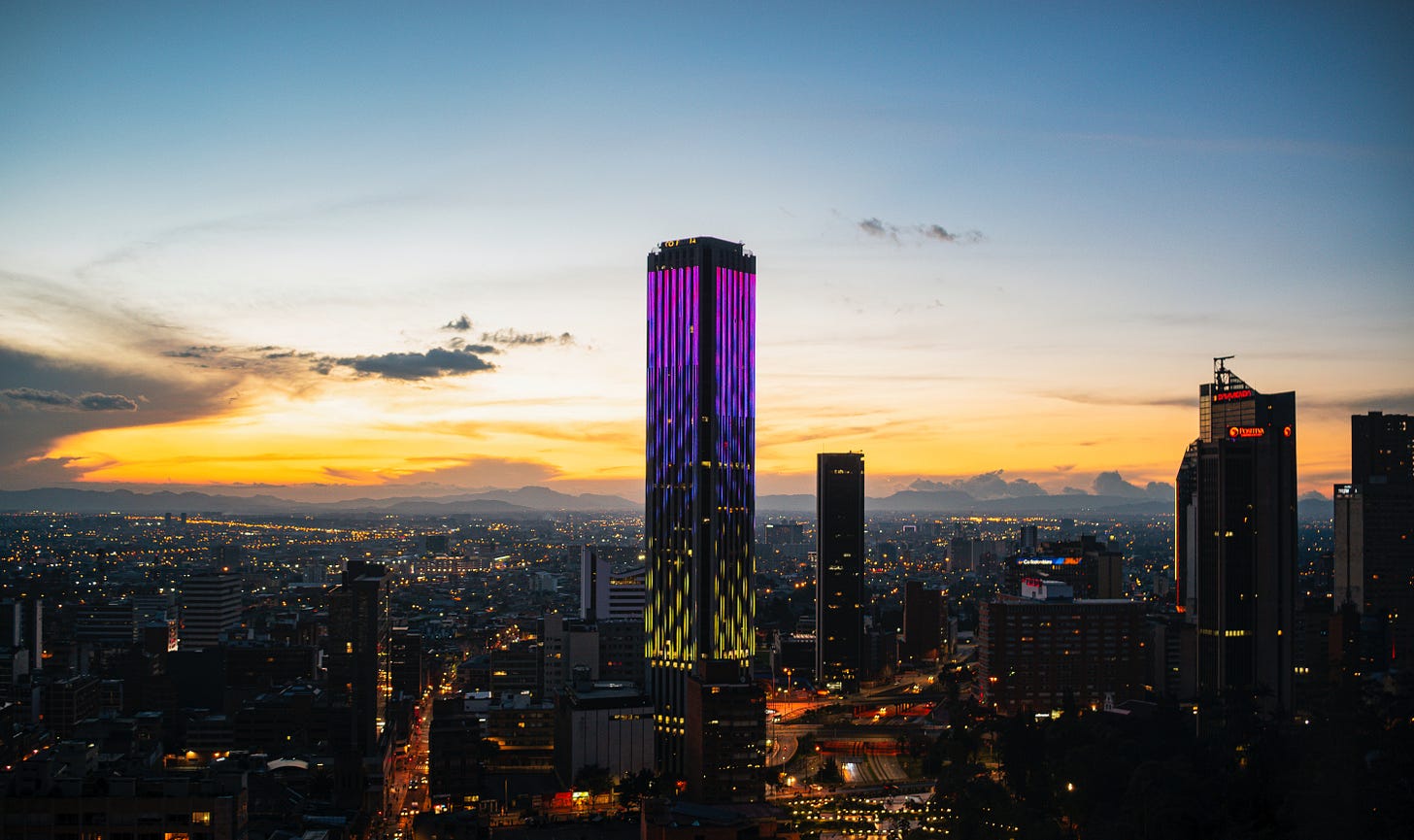Ecosystem Deep Dives #3: Colombia - Rise of the phoenix
How Colombian start-ups are reinventing the country after decades of war.

Introduction
Similar to the DRC, Colombia suffers from a bad image on the international scene, mostly fueled by Western romanticization of the narcotrafficking years epitomized by Pablo Escobar. Although still prone to drugs and paramilitary problems, Colombia is a radically different country now than it was twenty years ago. Cities such as Medellín went from being named "murder capital of the world" to a hype city for techies and digital nomads. Bogotá was just voted the second most entrepreneurial friendly city in Latin America. The country's poverty rate (people living with less than $5.5/day) dropped from 61% in 2001 to 29% today.
With a population of 51 million, 80% of it living in urban areas, a smartphone penetration rate of 72%, access to the Pacific and Atlantic, as well as a growing middle class, Colombia is now the third largest economy in Latin America. It is notably one of the only Latin American country whose currency, the Colombian peso, hasn't undergone destructive hyper-inflation, contrary to Argentina or, infamously, Venezuela. While previously boasting one of the largest corporate tax rates in Latin America, new governmental measures have sought to relieve businesses fiscal responsabilities in order to boost entrepreneurship in the country. The Colombian start-up scene, fueled by talented young Colombians, increased involvement from foreign investors, and governmental efforts to support the sector, have laid the ground for one of the fastest and most promising emerging market ecosystems. Colombian start-ups have the added advantage of enjoying a large enough domestic market with which to start with, while also having access to the large Mexican and Brazilian markets should they decide to expand.


